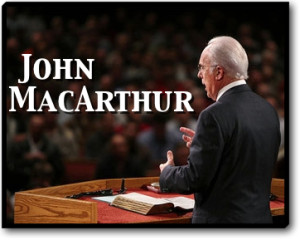 By Pastor Dan Phillips (original source cook, working as an investigator, hosting a talk show, IT education and support, and teaching in various institutions. He is a pastor, an author, and an international conference speaker. He has written two books: The World-Tilting Gospel (Kregel: 2011), and God’s Wisdom in Proverbs (Kress Biblical Resources: 2011). He was also one of the three contributors to the popular and influential blog, Pyromaniacs. He pastors Copperfield Bible Church in Houston, Texas, where he lives with his dear wife Valerie and two of their four children.)
By Pastor Dan Phillips (original source cook, working as an investigator, hosting a talk show, IT education and support, and teaching in various institutions. He is a pastor, an author, and an international conference speaker. He has written two books: The World-Tilting Gospel (Kregel: 2011), and God’s Wisdom in Proverbs (Kress Biblical Resources: 2011). He was also one of the three contributors to the popular and influential blog, Pyromaniacs. He pastors Copperfield Bible Church in Houston, Texas, where he lives with his dear wife Valerie and two of their four children.)
Every Christian is called to contend earnestly for the faith delivered to the saints 2000 years ago (Jude 3) in Scripture alone (2 Timothy 3:15—4:4; Hebrews 2:1-4). There are various legitimate ways of doing this. Paul’s approach with the Colossian error is particularly instructive.
The Colossians had a sound beginning, learning the saving good news of Christ from Paul’s associate Epaphras (Col. 1:7). They had made a healthy start (Col. 1:4-6, 8).
But now a personable, dynamic individual had come with a strange mix-and-match set of doctrines. Like modern charismatics, he made much of his own experiences (2:18). He posed a real danger to these young believers (2:4, 8).
Paul’s way of responding is striking. He doesn’t name the man, or go into detail about his teachings. Instead, what Paul does is make a great deal about Christ and His salvation. He shows what a glorious Lord Jesus is, and what a great salvation Christ has accomplished (see all my online studies, starting here).
As promised last time, I want to do this same sort of thing in marking off genuine Christianity from false teachings. Get a hold of these points of distinction, and you’ll be prepared to resist error – or be delivered from the error that enslaves you.
1. Sound doctrine spotlights the person and work of Jesus Christ
This is a matter of emphasis. Christ saw all parts of the Old Testament as pointing to Him (Luke 24:27, 44) and said that the ministry of the Spirit would be to continue to glorify Him (John 16:14). Understood correctly, then, everything in the whole Bible tends to the glory of Jesus Christ, and to prompt us to center our lives around Him (Col. 2:6, 7, 10). False teaching always ends up focusing our attention elsewhere and has us chasing in a different direction.
2. Sound doctrine is based on the saving work of Christ, conveyed to us in the Gospel
It glories in every aspect of Christ’s work redeeming helpless, lost sinners (Romans 3—5; Ephesians 1—3; and on and on). Everything – whether issues of personal ethics, marriage, family, church life –is directly related to who Jesus is to us, and what Jesus has done for us (cf. Eph. 4:1—6:9). False teaching has little time for such matters, being obsessed instead with the esoteric, private experiences that only the false teacher and his movement has had or can provide.
3. Sound doctrine is really, really old
Age alone is no guarantee of truth. The germs of every heresy ever hatched were already prowling around in New Testament times. That said, two truths guide us: (1) our doctrine must be clearly taught in the Bible; and (2) someone must surely have seen something about it before today! The Bible contains every word we need from God. Believers have studied it closely for centuries. Is it possible that someone could catch something major that tradition blinded others to? Yes. But possible is not a synonym for likely! It is unlikely that an isolated, accountability-averse autodidact with his KJV will see what all his betters missed, despite their years of delving deep in the Hebrew and Greek texts. Spurgeon said a number of times, “There is nothing new in theology but that which is false.” The more I learn the Bible and history, the more I see this truth: every claim to a “new move of God” is probably neither new, nor of God. God said His last word to us long, long ago (Hebrews 1:1-2; 2:1-4). Continue reading


